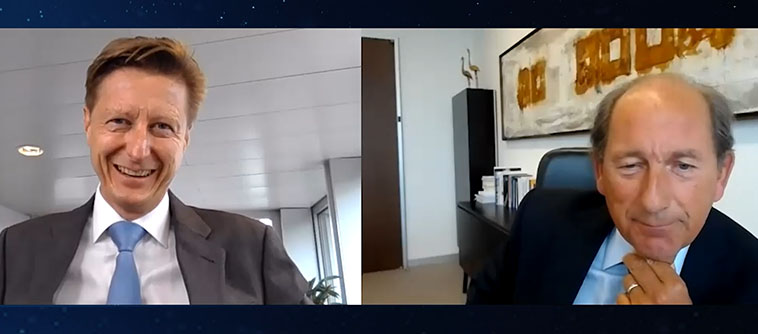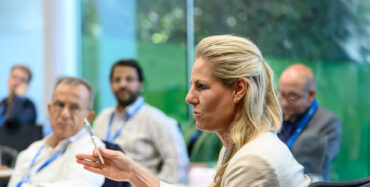In the third episode of “High Performance Boards”, IMD Professor of Governance Didier Cossin explores the topic of stewardship and how organizations can create true value with Chairman of Nestlé, Vice-Chairman of L’Oréal and Board Member of Roche Paul Bulcke.
With Nestlé’s “Creating shared value” program, the world’s largest food company has put stakeholders and society firmly at the heart of its operations, Bulcke says. He believes a Nestlé trio of values – safety, activity and solidarity – has allowed the company to thrive despite the ups and downs of 2020.
These are the seven responsibilities Bulcke says a board must prioritize to ensure better governance, better profits and a better future for all.
1. Favor resilience and not only efficiency
Resilience is made of sound, healthy principles; organizational health is the primary factor. Take for example Nestlé’s decision – which was widely criticized – to remain in Venezuela despite the country’s ongoing economic, social and political crisis. The group has five factories in the region that they chose to keep open because they support Nestlé’s long-term goals. Rather than making short-term adjustments based on the current conflict, they channelled resilience instead.
2. Foster strong management
A board must select the right leadership. In this case, strong management has ensured Nestlé is a company everyone – from the farmers to the staff – can count on. By supporting the CEO and executive board, the board can stick to governance while letting management handle daily operations.
3. Trust is earned, not bought
A board should have to earn trust and respect. Bulcke keeps in touch with Nestlé’s French-speaking audience, for example, as a way to communicate directly with them in their – and his – own language. This allows him to speak directly to, and build trust in, the community of the company’s birthplace and headquarters in French-speaking Switzerland.
4. Don’t underestimate the importance of board composition
People from different backgrounds and nationalities, with varied educational, technical and industry experiences, make for a good balance on a board. Nestlé board members are complementary in many ways and that allows the board to have fresh perspective and see all angles of a global problem like COVID-19, according to Bulcke.
5. The biggest duty is judgement capacity
The main challenge in today’s society is volatility, says Bulcke, and that while it has always existed, it is much more forceful. “The world is ambiguous; it’s no longer a world of good or bad, or East or West,” he says. Again, here the diversity of the Nestlé board allows the company to have better judgement.
6. Keep priorities straight
The ESG (Environmental, Social and Governance) movement has gained traction in the past few years. But the push for responsible and sustainable investment affects all stakeholders – including investors. “Just before the crisis, the environment took a prominent place on the world stage,” reminds Bulcke. He believes that while the crisis has shifted ESG to focus on the S – social concerns – a board must maintain balance of the E, the S and the G.
7. Ask the right questions but don’t give all the answers
A board must pose the specific questions needed to provide clarity for a company. Boards should have a “nose in, hands out” approach says Bulcke – the answers are not for the board, but rather for the CEO and the executive board to give.
Please read on for more commentary on this interview as well as other episodes in the High Performance Boards Conversation Series with IMD Professor of Governance Didier Cossin.

